Related Research Articles
Self-esteem is confidence in one's own worth, abilities, or morals. Self-esteem encompasses beliefs about oneself as well as emotional states, such as triumph, despair, pride, and shame. Smith and Mackie define it by saying "The self-concept is what we think about the self; self-esteem, is the positive or negative evaluations of the self, as in how we feel about it ."
Personality is any person's collection of interrelated behavioral, cognitive and emotional patterns that comprise a person’s unique adjustment to life. These interrelated patterns are relatively stable, but can change over long time periods.

William Clement Stone was an American businessman, philanthropist and New Thought self-help book author.

Self-handicapping is a cognitive strategy by which people avoid effort in the hopes of keeping potential failure from hurting self-esteem. It was first theorized by Edward E. Jones and Steven Berglas, according to whom self-handicaps are obstacles created, or claimed, by the individual in anticipation of failing performance.
"Surely You're Joking, Mr. Feynman!": Adventures of a Curious Character is an edited collection of reminiscences by the Nobel Prize–winning physicist Richard Feynman. The book, released in 1985, covers a variety of instances in Feynman's life. The anecdotes in the book are based on recorded audio conversations that Feynman had with his close friend and drumming partner Ralph Leighton.
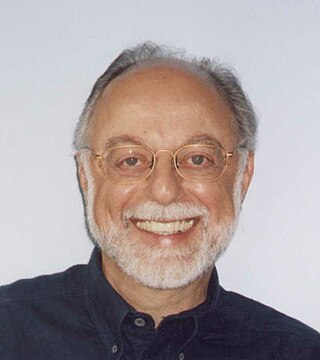
Fred Alan Wolf is an American theoretical physicist specializing in quantum physics and the relationship between physics and consciousness. He is a former physics professor at San Diego State University, and has helped to popularize science on the Discovery Channel. He is the author of a number of physics-themed books including Taking the Quantum Leap (1981), The Dreaming Universe (1994), Mind into Matter (2000), and Time Loops and Space Twists (2011).

Geoffrey Franklin Miller is an American evolutionary psychologist, author, and associate professor of psychology at the University of New Mexico. He is known for his research on sexual selection in human evolution.
The law of attraction is the New Thought spiritual belief that positive or negative thoughts bring positive or negative experiences into a person's life. The belief is based on the idea that people and their thoughts are made from "pure energy" and that like energy can attract like energy, thereby allowing people to improve their health, wealth, or personal relationships. There is no empirical scientific evidence supporting the law of attraction, and it is widely considered to be pseudoscience or religion couched in scientific language. This belief has alternative names that have varied in popularity over time, including manifestation and lucky girl syndrome.

Narcissism is a self–centered personality style characterized as having an excessive preoccupation with oneself and one's own needs, often at the expense of others.
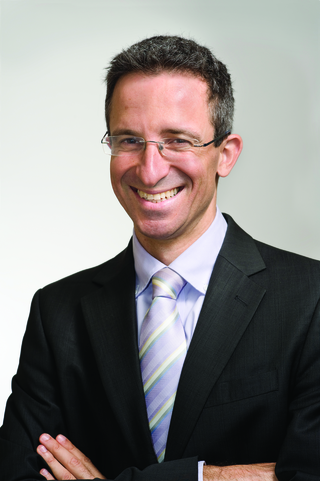
Tal Ben-Shahar, also known as Tal David Ben-Shachar, is an American and Israeli teacher, and writer in the areas of positive psychology and leadership. He has subsequently written several best-selling books and in 2011 co-founded Potentialife with Angus Ridgway, a company that provides leadership programs.
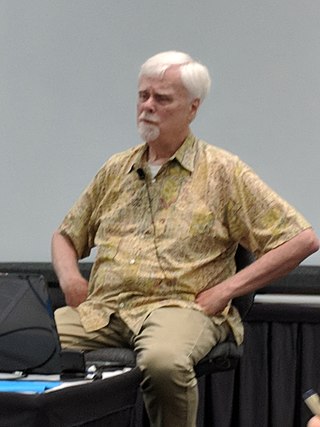
David D. Burns is an American psychiatrist and adjunct professor emeritus in the Department of Psychiatry and Behavioral Sciences at the Stanford University School of Medicine. He is the author of bestselling books such as Feeling Good: The New Mood Therapy, The Feeling Good Handbook and Feeling Great: The Revolutionary New Treatment for Depression and Anxiety.
Social identity is the portion of an individual's self-concept derived from perceived membership in a relevant social group.
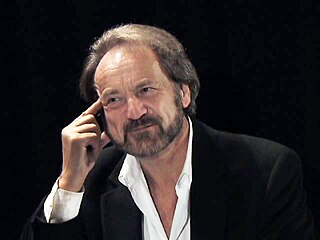
Roger Bingham was a British science educator, author and television host based in La Jolla, California. He was co-founder and director of the Science Network (TSN), a virtual forum dedicated to science and its impact on society. Bingham was also the creator of the Beyond Belief conferences.
Implicit self-esteem refers to a person's disposition to evaluate themselves in a spontaneous, automatic, or unconscious manner. It contrasts with explicit self-esteem, which entails more conscious and reflective self-evaluation. Both explicit and implicit self-esteem are constituents of self-esteem.

Affirmations in New Thought and New Age terminology refer primarily to the practice of positive thinking and self-empowerment—fostering a belief that "a positive mental attitude supported by affirmations will achieve success in anything." More specifically, an affirmation is a carefully formatted statement that should be repeated to one's self and written down frequently. For affirmations to be effective, it is said that they need to be present tense, positive, personal, and specific.
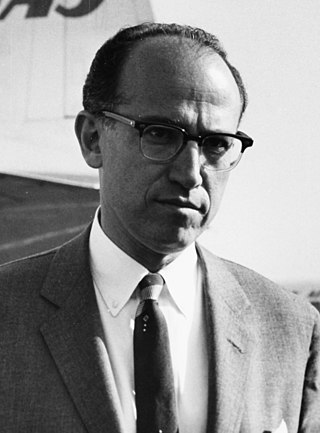
Jonas Edward Salk was an American virologist and medical researcher who developed one of the first successful polio vaccines. He was born in New York City and attended the City College of New York and New York University School of Medicine.
The concept of conscious evolution refers to the theoretical ability of human beings to become conscious participants in the evolution of their cultures, or even of the entirety of human society, based on a relatively recent combination of factors, including increasing awareness of cultural and social patterns, reaction against perceived problems with existing patterns, injustices, inequities, and other factors. The realization that cultural and social evolution can be guided through conscious decisions has been in increasing evidence since approximately the mid-19th century, when the rate of cultural change globally began to increase dramatically. The Industrial Revolution, reactions against the effects of the Industrial Revolution, the emergence of new sciences such as psychology, anthropology, and sociology, the revolution in global communication, the interaction of diverse cultures through transportation and colonization, anti-slavery and suffrage movements, and increasing human lifespan all would contribute to the growing awareness of social and cultural patterns as being potentially subject to conscious evolution.

The Psychology of Self-Esteem is a book by Nathaniel Branden, first published in 1969. It explains Branden's theories of human psychology, focusing on the role of self-esteem. Most of the book was written during Branden's association with Ayn Rand, and it reflects some of her philosophical ideas. The book's success helped to popularize the idea of self-esteem as an important element of self-improvement.
The National Association for Self-Esteem (NASE) is an American organization devoted to promoting the importance of self-esteem. The organization describes its purpose as "to fully integrate self-esteem into the fabric of American society so that every individual, no matter what their age or background, experiences personal worth and happiness." It was founded in 1986 as the National Council for Self-Esteem.
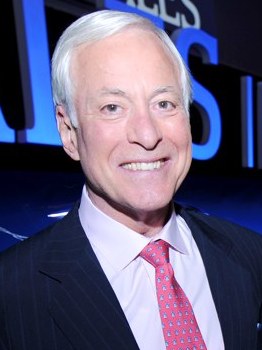
Brian Tracy is a Canadian-American motivational public speaker and self-development author. He is the author of over eighty books that have been translated into dozens of languages. His popular books are Earn What You're Really Worth, Eat That Frog!, No Excuses! The Power of Self-Discipline and The Psychology of Achievement.
References
- ↑ Polk, Laffoon (September 11, 1988). "Self-esteem Sells Well in Pop-psych marketing". The Miami Herald. p. 2G.
- ↑ "Denis Waitley". Success. 3 September 2008. Retrieved 16 December 2015.
- ↑ Sonja Ams; Alisa Cooper (30 October 2014). Transformation in Action: Breaking Through Limiting Beliefs to Live the Life of Your Dreams. Balboa Press.
- ↑ Reagan, Karyn (5 December 2012). "Legends: Denis Waitley is Planting Seeds of Greatness". Success. Retrieved 16 December 2015.
- ↑ Philippe Matthews (December 2011). "The Psychology of a Winner – An Exclusive Interview with Dr. Denis Waitley". The Philippe Matthews Show. Retrieved 16 December 2015.
- ↑ "Usana Director and Official Spokesman Has a "Secret"". Fraud Files Blog. 2007-03-28. Retrieved 2024-02-14.
- ↑ Winstein, Keith J. (March 31, 2007). "Credentials Flap Sends Usana Shares Down 7%". Wall Street Journal. Retrieved August 15, 2011.
- ↑ Evelyn M. Rusli (August 8, 2007). "Hard To Swallow". Forbes. Retrieved June 24, 2016.
- ↑ Waitley, Denis (1995). Empires of the Mind. HarperCollins. p. 82. ISBN 0-688-14763-1.